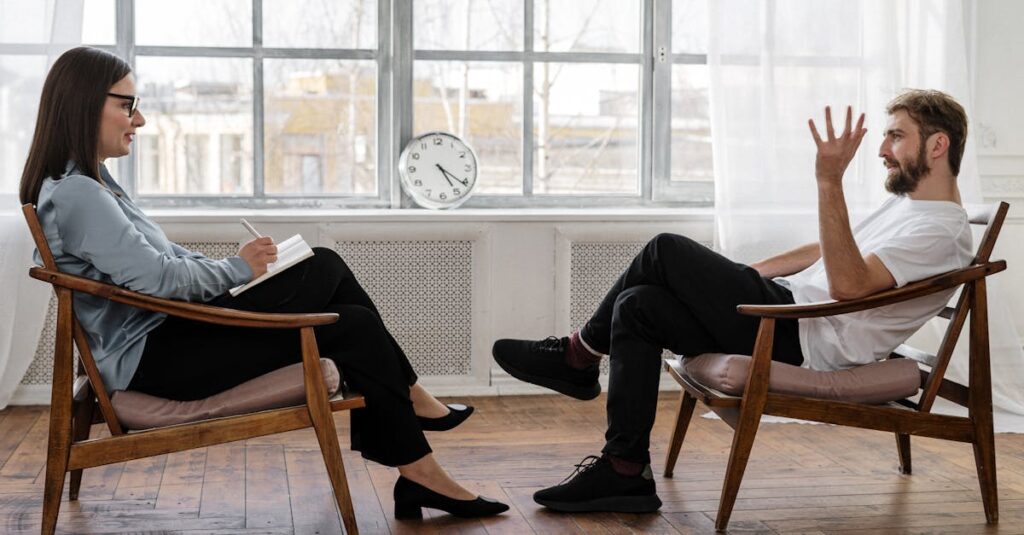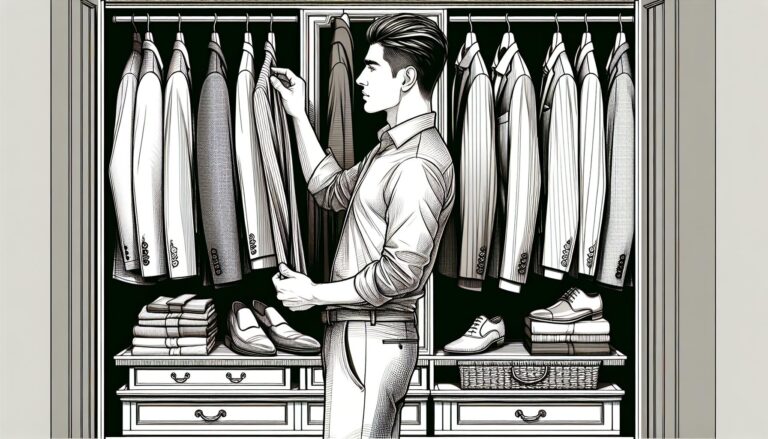Embracing minimalism has not only transformed my living space but also had a profound impact on my mental health. By decluttering my surroundings and simplifying my life, I’ve found a sense of calm and clarity that I never knew was possible. Minimalism is more than just a design trend; it’s a lifestyle choice that can lead to significant improvements in overall well-being.
In this article, I’ll delve into the powerful connection between minimalism and mental health, exploring how the principles of simplicity and mindfulness can help reduce stress, anxiety, and overwhelm. From the psychological benefits of a clutter-free environment to the emotional freedom that comes with letting go of material possessions, minimalism offers a path to greater mental clarity and inner peace. Let’s uncover the transformative effects of embracing a minimalist mindset on our mental health.
Understanding Minimalism and Its Core Principles
Minimalism isn’t just about owning fewer possessions; it’s a mindset focused on intentionality and simplicity in all aspects of life. Less is more isn’t merely a design principle but a philosophy that extends to mental well-being. Embracing minimalism means prioritizing what truly matters and letting go of excess distractions that clutter our minds and living spaces.
At its core, minimalism revolves around a few key principles that shape its essence:
- Intentionality: Being deliberate in choices, actions, and commitments.
- Simplicity: Striving for clarity and eliminating the unnecessary.
- Mindfulness: Staying present and appreciating the moment.
- Contentment: Finding joy in experiences rather than material possessions.
By focusing on these pillars, minimalism encourages a shift in perspective towards a more meaningful and fulfilling life. It’s about quality over quantity and conscious consumption that aligns with personal values and goals.
Practicing minimalism involves decluttering not just physical spaces but also mental and emotional clutter. It’s a journey of self-discovery that leads to a lighter, more purposeful existence. Minimalism isn’t a one-size-fits-all approach; it’s about customizing your life to reflect what brings you true happiness and fulfillment.
The Psychological Benefits of a Clutter-Free Environment
Studies have shown that a clutter-free environment can have a significant impact on mental health. When my surroundings are organized and free of clutter, I feel a sense of calm and peace. It’s as if my mind can breathe better in a tidy space.
A clutter-free environment can reduce feelings of anxiety and overwhelm. I’ve experienced firsthand how a clean and organized space can help me focus better and feel more productive. It’s like a weight lifted off my shoulders when I enter a room that is free of clutter and distractions.
Having a clutter-free environment can also improve sleep quality. When my space is tidy, I find it easier to relax and unwind before bedtime. It’s amazing how a simple act of tidying up can have such a profound impact on my mental well-being.
In essence, maintaining a clutter-free environment not only benefits the physical space but also nurtures my mental state. It’s a small yet powerful way to promote mental clarity and wellness in my daily life.
Embracing Simplicity for Mental Clarity
Living a minimalist lifestyle has transformed the way I view possessions and the space around me. By reducing clutter and embracing simplicity, I’ve discovered a profound sense of mental clarity. Minimalism isn’t just about decluttering physical spaces; it’s a mindset that encourages intentionality and mindfulness in all aspects of life.
Simplicity has a way of calming the chaos of daily life, allowing me to focus on what truly matters. Simplifying my surroundings has led to a sense of freedom and lightness that translates into mental well-being. With less physical distractions, I find it easier to concentrate, be present in the moment, and appreciate the beauty of simplicity.
Minimalism has taught me to let go of the unnecessary and prioritize what brings true joy and value. By streamlining my possessions and commitments, I’ve created space for mental clarity to flourish. Embracing simplicity isn’t about deprivation; it’s about cultivating a meaningful life centered on the things that truly enrich it.
In a world filled with constant noise and stimuli, embracing minimalism has been my anchor to mental clarity. It’s a daily practice that reminds me to focus on what’s essential and let go of the rest. This intentional way of living has brought a sense of peace and contentment that transcends material possessions.
Practicing Mindfulness Through Minimalism
Mindfulness is a core aspect of minimalism, helping me stay present and fully engaged in each moment. By simplifying my surroundings and removing distractions, I nurture a deep sense of awareness and appreciation for the now. This intentional focus on the present moment has significantly reduced my anxiety and stress levels, allowing me to approach challenges with greater clarity and calmness.
Engaging in mindfulness through minimalism has also enhanced my decision-making skills, enabling me to prioritize what truly matters and let go of what no longer serves me. By cultivating this mindful practice, I’ve learned to savor simple joys, such as a quiet cup of tea or a peaceful sunset, leading to a more fulfilled and content life. The practice of mindfulness in minimalism has transformed my perspective on everyday experiences, emphasizing the beauty of simplicity and the power of living with purpose.
Through the lens of minimalism, I’ve discovered that mindfulness is not just a practice but a way of life. It goes beyond meditation sessions to permeate every aspect of my daily routine, guiding me to make conscious choices aligned with my values and well-being. This integration of mindfulness and minimalism has been key in maintaining my mental health and fostering a deep sense of inner peace. Embracing mindfulness through minimalism has been a powerful tool in navigating life’s complexities with grace, gratitude, and serenity.
| Mindfulness Benefits: | Data: |
|---|---|
| Reduction in anxiety and stress levels | ✓ |
| Enhanced decision-making skills | ✓ |
| Increased sense of fulfillment | ✓ |
| Improved mental health | ✓ |
Letting Go of Material Possessions for Emotional Freedom
Decluttering my physical space was a significant turning point in my mindfulness and minimalism journey. Studies show that a cluttered environment can lead to increased stress levels and decreased productivity. By purging items I no longer need or cherish, I created a serene and organized living space that promotes peace of mind.
Minimalism has taught me that true emotional freedom often comes from releasing attachments to material possessions. Letting go of excess stuff has enabled me to focus on what truly matters in life. It’s incredible how simplifying my surroundings has had a profound impact on my mental well-being.
Through the process of decluttering, I discovered that I had been holding on to things out of fear, nostalgia, or a sense of obligation. By letting go, I experienced a sense of liberation and a newfound appreciation for the present moment. Minimalism has empowered me to detach my emotions from material objects and find contentment in simplicity.
Embracing minimalism and practicing mindfulness have been transformative for my mental health. The act of decluttering not only clears physical space but also declutters the mind, making room for clarity and calmness. Letting go of material possessions has brought me emotional freedom and a deeper sense of fulfillment in life.
Key Takeaways
- Minimalism is more than decluttering; it’s a lifestyle choice that can significantly improve mental health by promoting calmness, clarity, and purpose.
- Key principles of minimalism include intentionality, simplicity, mindfulness, and contentment, which encourage a shift towards a more meaningful and fulfilling life.
- A clutter-free environment has psychological benefits, reducing anxiety, promoting focus and productivity, and enhancing sleep quality.
- Embracing simplicity can lead to mental clarity by reducing distractions, allowing for better concentration, presence in the moment, and appreciation for what truly matters.
- Practicing mindfulness through minimalism fosters awareness, reduces stress and anxiety, enhances decision-making skills, and brings a deep sense of fulfillment and contentment.
- Letting go of material possessions can lead to emotional freedom, liberation from attachments, and a renewed focus on what truly matters, contributing to improved mental well-being.
Conclusion
Embracing minimalism has truly been a game-changer for my mental well-being. By simplifying my surroundings and focusing on what truly brings me joy, I’ve found a deeper sense of peace and clarity. Letting go of material possessions has not only decluttered my physical space but also decluttered my mind, allowing me to appreciate the present moment more fully. Through this journey, I’ve discovered the power of emotional freedom that comes with releasing attachments to things and embracing a minimalist lifestyle. This transformation has brought me a newfound sense of calmness and appreciation for the beauty of simplicity. In the end, minimalism has not only improved my mental health but has also enriched my overall quality of life.
Frequently Asked Questions
1. Why is decluttering important for mindfulness?
Decluttering creates a serene living space that enhances peace of mind, allowing better focus on what truly matters in life.
2. How does decluttering impact emotional well-being?
Letting go of material possessions offers emotional freedom, revealing attachments and fears associated with belongings, leading to a sense of liberation and appreciation for the present moment.
3. What benefits does embracing minimalism and mindfulness offer?
Embracing minimalism and mindfulness transforms mental health, providing clarity and calmness by decluttering both physical space and the mind.



